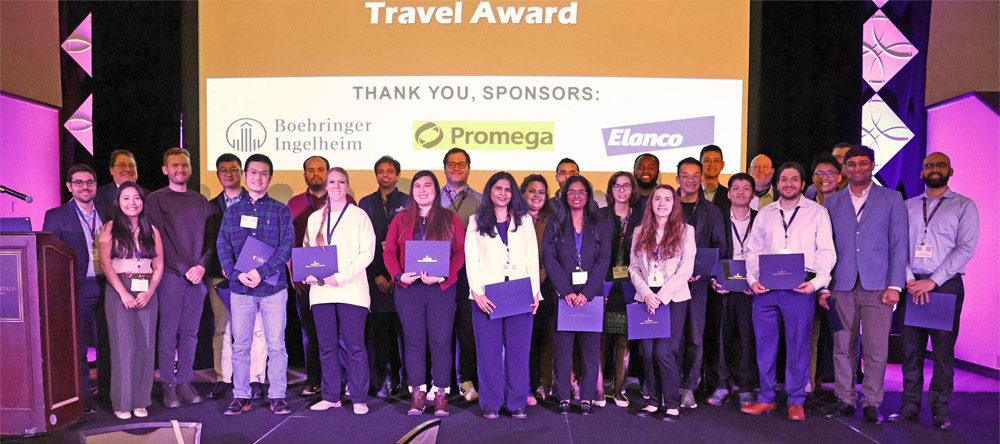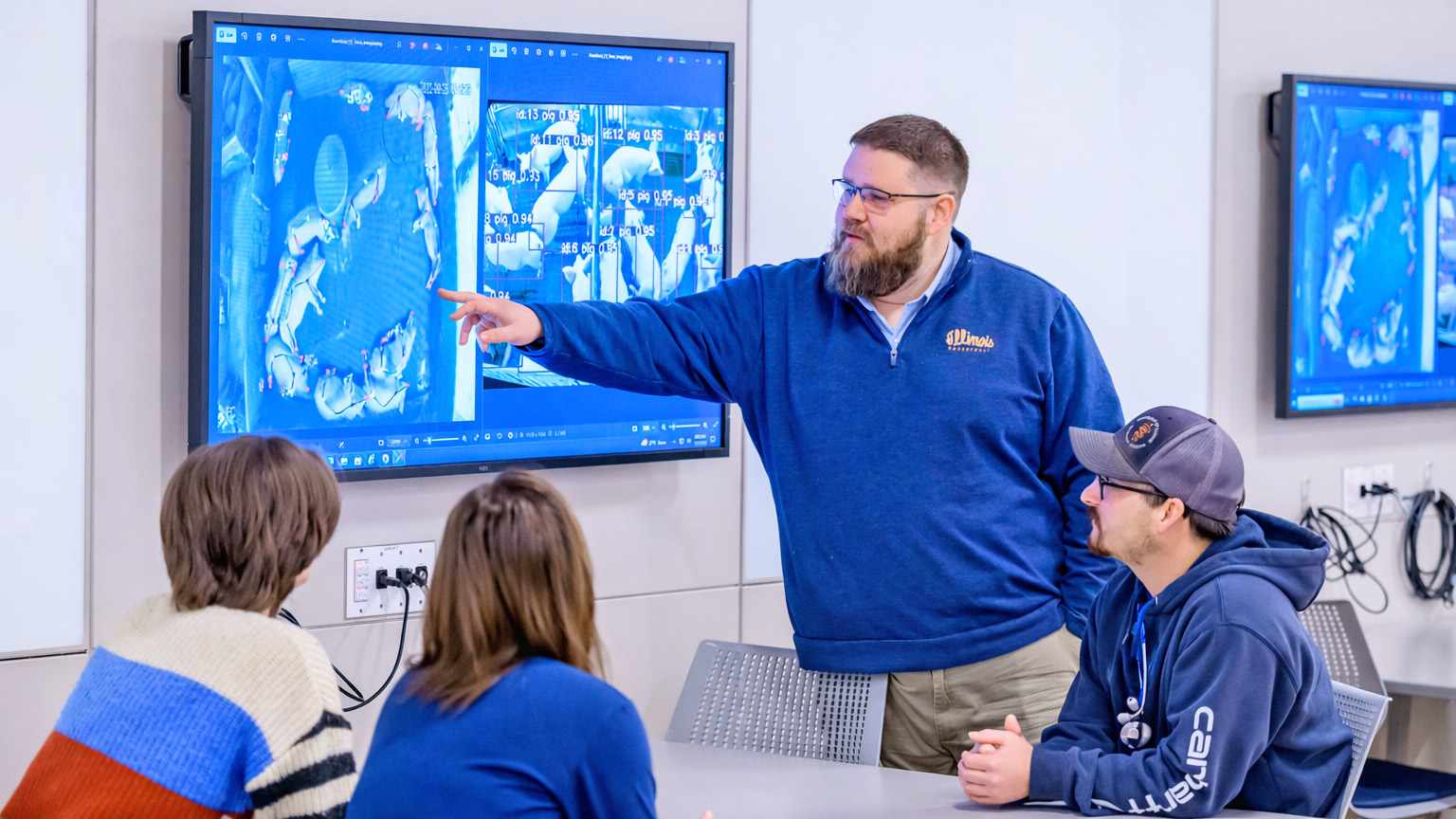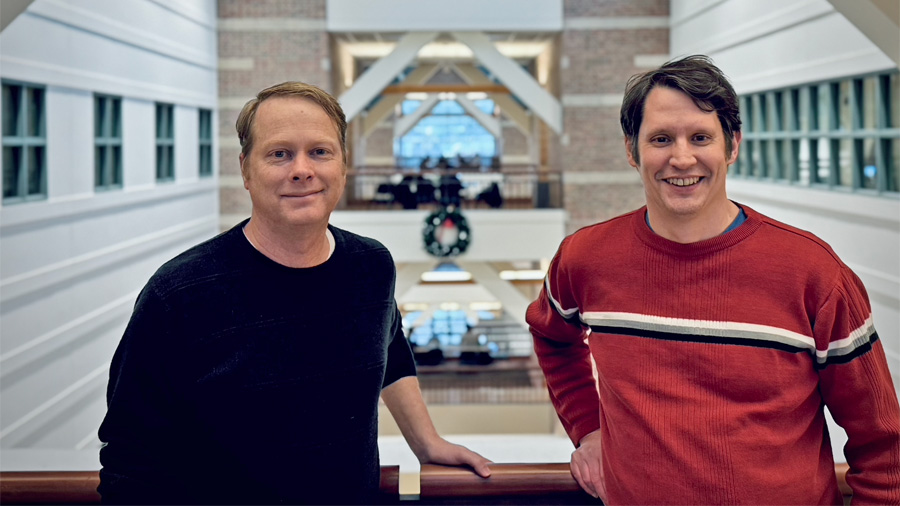Ratnakar Singh came to the College of Veterinary Medicine in May 2018 as a postdoctoral fellow in Dr. Michael Spinella’s laboratory and held an appointment as a research scientist before becoming a research assistant professor in May 2022. He also holds an appointment in the Cancer Center at Illinois in the Cancer Engineering and Biological Systems program under the Comparative and Engineered Oncology Models theme.
Using about 60 words, how would you explain your main area of research focus to someone sitting next to you on an airplane?
I study how certain genes and molecular pathways control cancer cells’ sensitivity to chemotherapy. Using testicular and breast cancer models, I focus on elucidating how changes in DNA methylation and histone methylation contribute to drug resistance. By uncovering these mechanisms, we aim to develop more effective, personalized treatments, some of which have already advanced to clinical trials.
How will your work impact quality of life and benefit society both locally and globally?
My research aims to improve cancer treatment outcomes by addressing one of the most pressing challenges in oncology: chemotherapy resistance. Many patients with testicular cancers initially respond to treatment, but some later develop resistance, leading to disease progression and limited therapeutic options.
By identifying the molecular and epigenetic changes (such as alterations in DNA methylation and histone methylation) that drive this resistance, my work helps uncover why treatments fail and how we can overcome these barriers.
Our research has already led to the development of targeted epigenetic therapies that restore drug sensitivity, including DNA hypomethylating drugs and polycomb-targeting agents. These therapies are now being tested in clinical trials, offering new hope for patients with drug-refractory cancers.
Locally, this work enhances the quality of care by supporting precision medicine initiatives and fostering translational research at the University of Illinois. Globally, it provides a foundation for new cancer treatment paradigms, contributing to the development of more effective, less toxic therapies that improve survival and quality of life for patients around the world.
Ultimately, this research will reduce the physical, emotional, and financial burdens of cancer for individuals, families, and healthcare systems.
What excites you most about the future of research in your field?
I am particularly excited about our upcoming clinical trial in collaboration with our partners at Memorial Sloan Kettering Cancer Center, which is based on our preclinical findings. This trial will use epidrugs, DNA hypomethylating agents, to effectively treat relapsed or chemoresistant testicular germ cell tumors (TGCTs).
Immunotherapy has shown dramatic success in some cancers (like melanoma, lung cancer, and certain leukemias), but its effectiveness varies across cancer types, and not all patients respond to the same extent. Immune checkpoint inhibitors have shown limited success in TGCTs.
I am also looking forward to developing rational combinations that may become a valuable option for platinum-resistant TGCTs, potentially in concert with epigenetic or cytotoxic priming to convert “immuno-cold” tumors into “immuno-hot” ones.
What tools are critical to the work you do?
As a translational oncologist, I utilize a range of tools, including next-generation sequencing, bioinformatics, molecular biology, mouse models, and high-throughput drug screening to connect laboratory discoveries with clinical practice. These methodologies facilitate the identification of biomarkers, enable targeted therapies, and support the development of personalized treatment strategies, thereby expediting the transition of effective cancer therapies from the research bench to patient care.
How has the broader U. of I. research community factored into your success?
The research community at the University of Illinois has been invaluable in advancing my research journey. What sets this institution apart is its emphasis on interdisciplinary collaboration and the active involvement of students at all levels, from undergraduates to graduates.
Facilities such as the High-throughput Screening Facility and Tumor Engineering and Phenotyping at the Cancer Center at Illinois, along with the National Center for Supercomputing Applications and the proteomics and DNA services core at the Roy J. Carver Biotechnology Center provide outstanding resources for cutting-edge research and emerging technologies.
What publication are you most proud of?
Choosing a single publication to highlight is quite a challenge for me because I take immense pride in all of my work that has been published. If I have to pick one related to work I’m currently doing, I would go with:
- Epigenetic Remodeling through Downregulation of Polycomb Repressive Complex 2 Mediates Chemotherapy Resistance in Testicular Germ Cell Tumors (https://www.mdpi.com/2072-6694/11/6/796)
In this 2019 publication — my first after joining Illinois — we were the first to use unique cisplatin-resistant cell models and de novo transcriptional profiling approaches, which unexpectedly revealed a significant role for epigenetics in the sensitivity and resistance of TGCTs to cisplatin. This research has laid the groundwork for all my future studies.
If your work depends on collaborations with people in other fields of study, what are those fields?
To succeed in the field of translational oncology, it is crucial to integrate molecular profiling tools, bioinformatics, preclinical models, drug discovery platforms, and clinical trial infrastructure. We have active collaboration with several prominent research groups both on campus and at leading institutions, including the University of Illinois Chicago, Indiana University, Cornell University, and Memorial Sloan Kettering Cancer Center.
I am particularly excited about collaborating with Dr. Robert Weiss from Cornell University. He provided us with his genetically engineered mouse model of malignant testicular cancer. This model will enable us to study immunotherapeutic options for this type of cancer.
Our upcoming clinical trial, which aims to target DNA hypermethylation to overcome cisplatin resistance in patients with relapsed or refractory TGCTs, is being led by Dr. Darren Feldman, a clinical scientist at Sloan Kettering.
More about Ratnakar Singh
Ratnakar Singh
Research Assistant Professor
Department of Comparative Biosciences
Education
- PhD, All India Institute of Medical Sciences, New Delhi, India
- MSc, Jawaharlal Institute of Postgraduate Medical Education and Research, Puducherry, India
- BSc, Jawaharlal Institute of Postgraduate Medical Education and Research, Puducherry, India
Academic Positions
- Postdoctoral Research Fellow, MD Anderson Cancer Center, Houston, Texas




